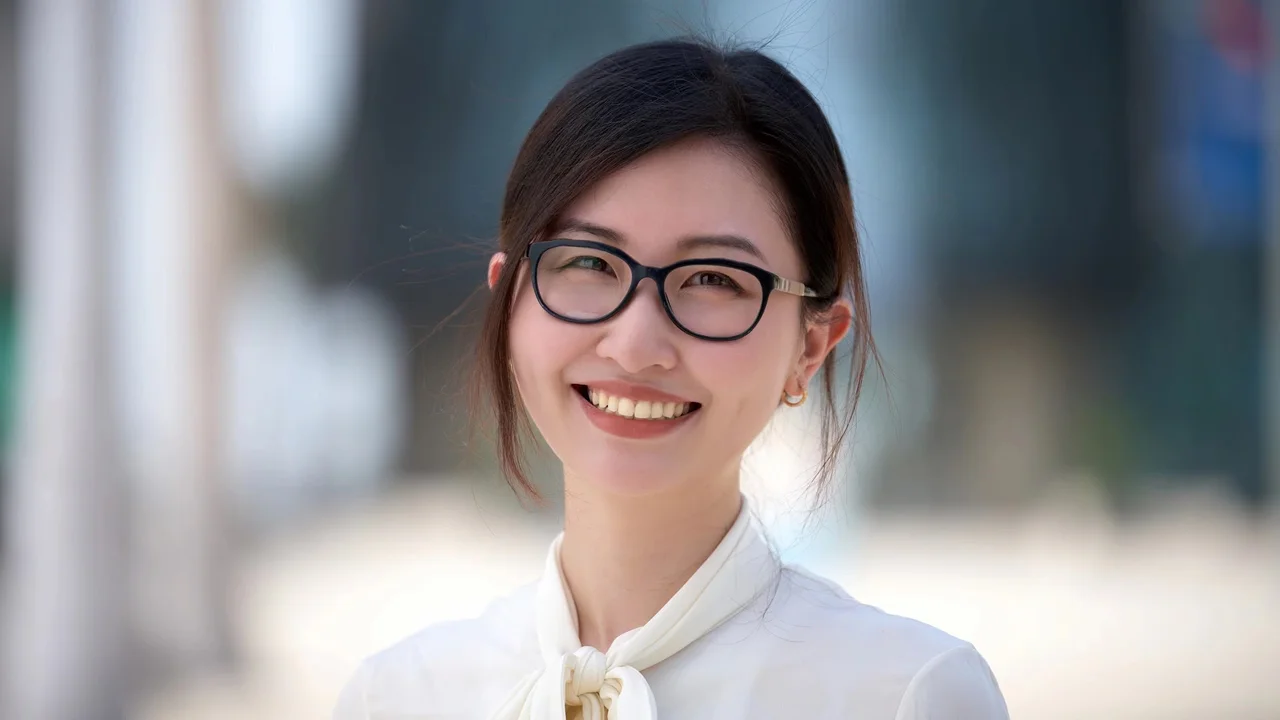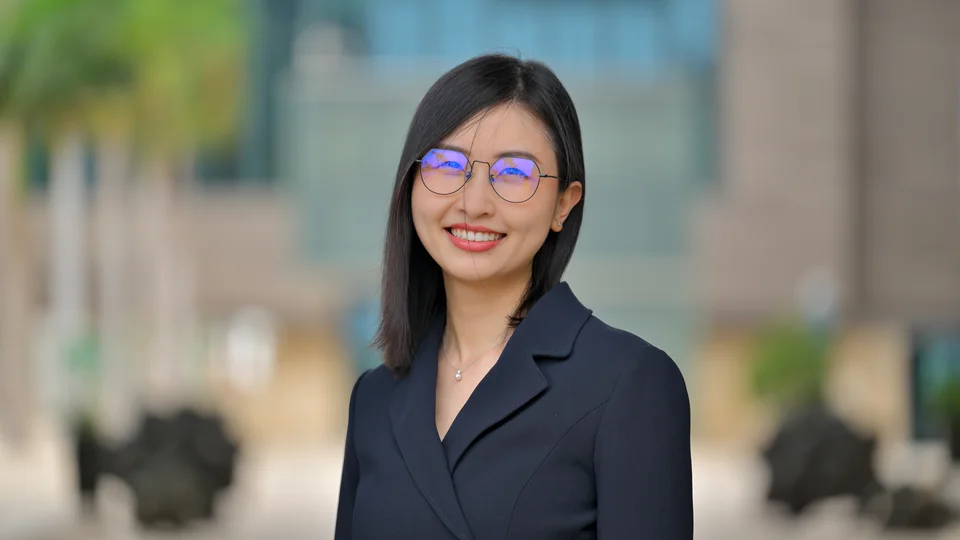
The 20-year dash: Celebrating the accomplishments of our inspiring in-Kingdom and international female scientists
The presence of women in scientific disciplines in the Kingdom has risen from almost zero to 32 percent in just 20 years. KAUST has contributed greatly to the positive trend as a platform for women from Saudi Arabia and all over the world to study and develop their ideas in a modern campus and research environment.
About
By Francesca Serra and David Murphy
Jamaican sprinter Elaine Thompson-Herah is officially the world’s fastest woman. The 29-year-old sprinter, who competes in the 60 metres, 100 metres and 200 metres, won gold in the 100-meter dash at the Tokyo Games in 2021, crossing the finish line in just 10.61 seconds, breaking a 33-year-old Olympic record for the race in the process.
When it comes to the race that is achieving excellence in the fields of science and engineering, how fast can women go? Considering the past 20 years, the answer is extremely fast. And here, in Saudi Arabia, after a somewhat slow start to the “race,” people are now witnessing one of the quickest sprints in the world. It's a sprint that cannot be described in stock measurements of inches, feet and centimetres, but a race that has brought the presence of women in scientific disciplines in the Kingdom from almost zero to 32 percent in just 20 years.
“Having been raised in Saudi Arabia, I was fortunate to get this strong foundation of self-belief. “My culture, my family, and my faith have all contributed to that foundation. I had a father who could teach me anything I wanted.” These are the words of Dr. Hayat Sindi, the first Saudi "racer," in a 2018 interview with Entrepreneur Middle East.
Sindi—one of the world's leading biotechnologists—rose to fame in 2001 for being the first woman in the Kingdom and the Gulf region to receive a doctorate in biotechnology from the University of Cambridge, U.K. In many ways, she can be considered a pioneer who excelled in her chosen field in an era when Arab women did not have the same levels of access to study and work opportunities as their male counterparts.
However, Sindi is not a woman content to rest on her laurels. In 2007, she co-founded a non-profit enterprise called Diagnostic for All. Four years later, in 2011, she founded the Institute for Imagination Ingenuity (i2institute), an organization created to support and foster entrepreneurship and social innovation for scientists, technologists and engineers in the Middle East and beyond.
Despite her incredible achievements as a Saudi female scientist, the dash to the “finish line” was not over for Dr. Sindi. In a handful of years, she checked all the career boxes and broke new ground wherever she ventured. In 2013, she was among the first thirty women nominated to be on the Shura Council—Saudi Arabia's highest legislative body—and soon after that, she became the senior advisor to the Islamic Development Bank (isDB) on science and technology. In 2018, she launched the IsDB's 500 million dollar Transform Fund, which became the first Saudi financial tool to support technological innovation worldwide.
Throughout her career, she won several prestigious awards and honors, most notably in 2012 when she was appointed as a UNESCO Goodwill Ambassador and made Newsweek's list of the 150 most powerful women in the world.
Sindi is a pioneer, paving the way for others to follow in her footsteps. Like her, they have used science to create a place in the world for themselves and bring prosperity to the scientific community and to other women.
Among those other women is Adah Almutairi, Professor of Pharmaceutical Chemistry, Materials Science & Engineering, Nanoengineering, and Director of excellence in nanomedicine at the University of California, San Diego, U.S., who, according to Forbes, is “one of the world's top ten most influential female engineers.” There is also Mishaal Ashemimry, a Saudi-American aerospace engineer, commercial pilot, CEO of her own company, MISHAAL Aerospace, and the first Saudi woman to join NASA. And the list of influential women in STEM goes on.
Twenty years since the race started, Islam’s latest "House of Wisdom," KAUST, provides a platform for women from Saudi Arabia and all over the world to study and develop their ideas in a modern campus and research environment. The brightest female scientific minds can and do flourish in a unique ecosystem where innovation and disruptive ideas grow freely and bloom with the support of cutting-edge facilities and an international melting-pot of scientists, industry partners, innovation and start-ups.
In acknowledgement of the myriad accomplishments of our female faculty at KAUST and to celebrate International Women in Engineering Day (INWED), PSE News recently sat down with a couple of our most inspiring “racers.” They told us about their careers, their journeys through the world science of science, the obstacles they met along the way, and their future aspirations for themselves and the female scientists of tomorrow.
Could you please briefly tell me about your career/journey in the world of science and some of the obstacles you met along the way?
Peiying Hong, Associate Professor, Environmental Science and Engineering: I would say my journey into the world of science started when I was in my year three of undergraduate studies. I was given the opportunity to do a research internship at Tampere University in Finland and got to see what research is like. I was then given education scholarships to pursue Ph.D. studies, and one thing led to another. I am very grateful for the opportunities I was given and the support I have gotten from so many individuals throughout this journey. I usually do not remember much about obstacles as I choose to move forward and not dwell on the past. But I think I have been really fortunate to always meet the right people at the right time.
Yating Wan, Assistant Professor, Electrical and Computer Engineering: The start of my Ph.D was very difficult; I was doing a completely new project and had no publications in the first four years. There are many times that I wanted to quit. But I finally made it through all the trial and error with the help of my group members and collaborators.
Later, catalyzing a number of new research projects, including one with Intel which heterogeneously integrated indium arsenide quantum dot lasers with Intel silicon photonics. My research has ramped up since then, and I have published more than 60 peer-reviewed research papers, including 33 first-author papers.
According to the INWED’s figures, as of June 2021, 16.5% of engineers worldwide are women. Why do you believe women engineers are still hugely under-represented in this profession? Do you anticipate that this underrepresentation will be a thing of the past in the near future?
Prof. Hong: I think societal norms and sometimes women themselves still expect women to step up and take charge of meeting the needs of their families. So usually, they are the ones who would volunteer to quit their job and stay home to take care of the family. I think a supportive system in the workplace should be put in place to allow women to multitask both their personal and familial commitments in an effective way. Having a supportive family who can understand the struggles and are willing to share the load is also very important.
I think society is progressing to allow more women to work in the profession, but they are still not being recognized enough to take leadership roles. Also, women themselves think they do not deserve leadership roles. Only when more women become empathetic and effective leaders in the upper managerial roles, will we see this underrepresentation alleviated with time.
Prof. Wan: While I have never felt discriminated against as a woman, being a woman in the male-dominated engineering world makes me feel challenged and lonely at times. Conferences are often full of mostly white men, and I can go to entire sessions where no women are on a panel. I have had to work hard to fit in with professional networks, to get heard and recognized.
Fortunately, I was lucky to meet my Ph.D. supervisors, Prof. Kei May Lau, and Prof. Evelyn Hu, both female scientists who are incredible sources of support and inspiration. They embody everything: advisors, life mentors, and role models. Now, as an early career research scientist, I strongly feel that women advocating for women is so essential in all disciplines, including building a network of peers, looking up to prominent woman scientists, and inspiring young females to pursue this path.
What are some future aspirations you have for yourself and the female scientists of tomorrow?
Prof. Hong: Put in your best effort and believe in yourself.
Prof. Wan: The most important thing is that we need to stay focused on what’s really important: doing great science.
About INWED
On June 23, 2014, the National Women in Engineering Day was first launched in the United Kingdom by the Women’s Engineering Society (WES) to celebrate its 95th anniversary. Since its launch, the day has grown enormously to the point of receiving UNESCO patronage in 2016. In 2017, the day officially became known as an international event for the first time, and International Women in Engineering Day (INWED) was born.
INWED was created to raise the profile of women in engineering and focus attention on the amazing career opportunities available to girls in this exciting industry. It celebrates the outstanding achievements of women engineers throughout the world.
